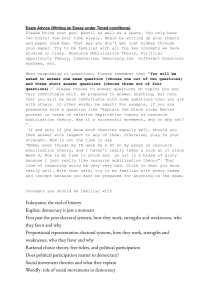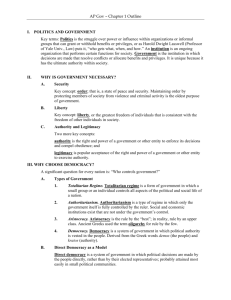Piras_Abstract
advertisement
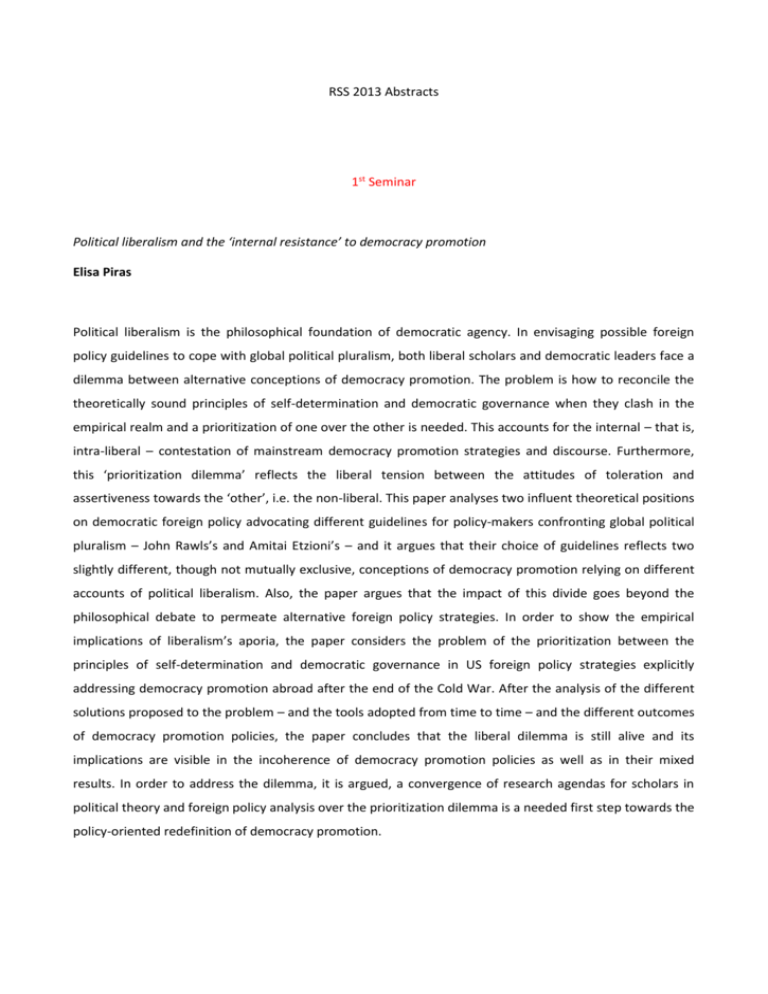
RSS 2013 Abstracts 1st Seminar Political liberalism and the ‘internal resistance’ to democracy promotion Elisa Piras Political liberalism is the philosophical foundation of democratic agency. In envisaging possible foreign policy guidelines to cope with global political pluralism, both liberal scholars and democratic leaders face a dilemma between alternative conceptions of democracy promotion. The problem is how to reconcile the theoretically sound principles of self-determination and democratic governance when they clash in the empirical realm and a prioritization of one over the other is needed. This accounts for the internal – that is, intra-liberal – contestation of mainstream democracy promotion strategies and discourse. Furthermore, this ‘prioritization dilemma’ reflects the liberal tension between the attitudes of toleration and assertiveness towards the ‘other’, i.e. the non-liberal. This paper analyses two influent theoretical positions on democratic foreign policy advocating different guidelines for policy-makers confronting global political pluralism – John Rawls’s and Amitai Etzioni’s – and it argues that their choice of guidelines reflects two slightly different, though not mutually exclusive, conceptions of democracy promotion relying on different accounts of political liberalism. Also, the paper argues that the impact of this divide goes beyond the philosophical debate to permeate alternative foreign policy strategies. In order to show the empirical implications of liberalism’s aporia, the paper considers the problem of the prioritization between the principles of self-determination and democratic governance in US foreign policy strategies explicitly addressing democracy promotion abroad after the end of the Cold War. After the analysis of the different solutions proposed to the problem – and the tools adopted from time to time – and the different outcomes of democracy promotion policies, the paper concludes that the liberal dilemma is still alive and its implications are visible in the incoherence of democracy promotion policies as well as in their mixed results. In order to address the dilemma, it is argued, a convergence of research agendas for scholars in political theory and foreign policy analysis over the prioritization dilemma is a needed first step towards the policy-oriented redefinition of democracy promotion.
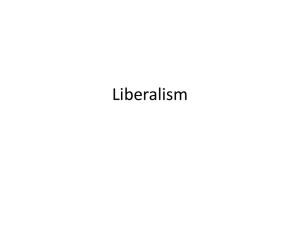




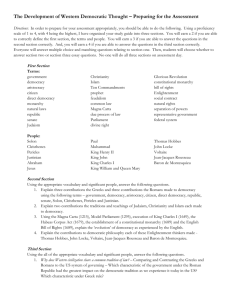



![“The Progress of invention is really a threat [to monarchy]. Whenever](http://s2.studylib.net/store/data/005328855_1-dcf2226918c1b7efad661cb19485529d-300x300.png)
